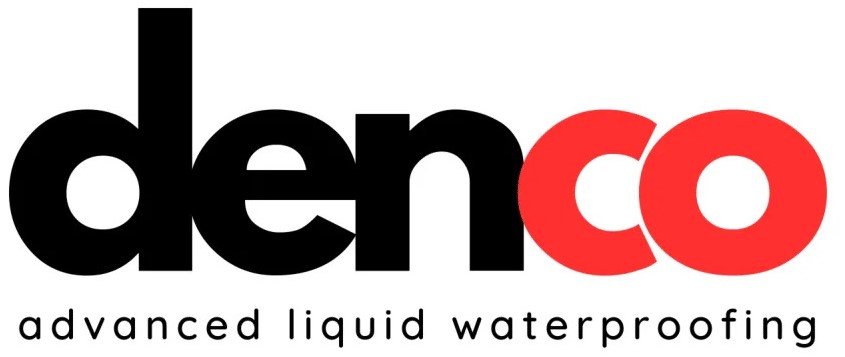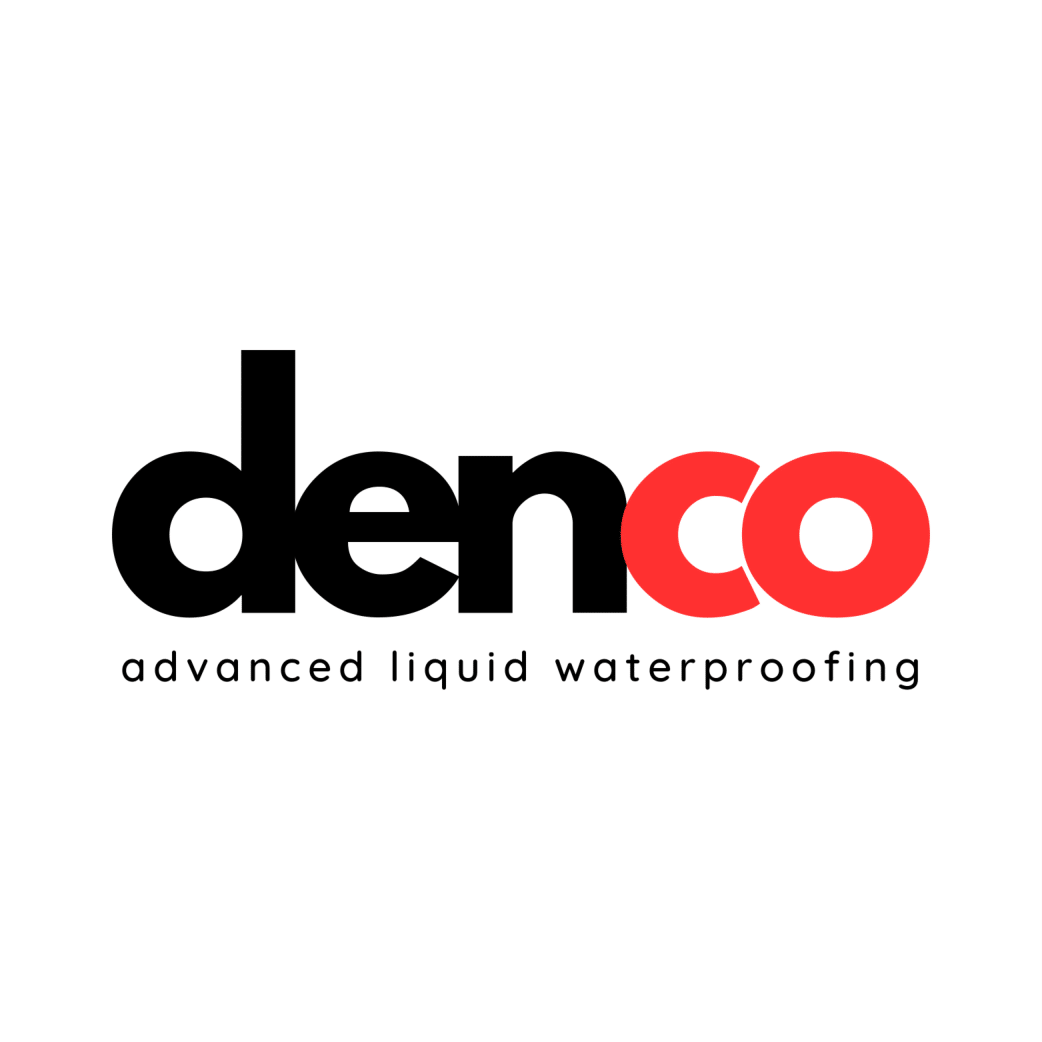
Contents
Our Services
Liquid waterproofing
What Client Say
I would just like to say a big thank you to the Denco team for the work they recently did on our roof, such a great finish. They repaired the old asphalt and covered it with a lovely new grey liquid coating. Leaving the premises very clean and tidy, we are so pleased with the end result. Thank you again guys.
Thank you to Lee and his colleagues from Denco Waterproofing for the outstanding job that they have completed on our balcony. Very impressed with there standard of workmanship and will definitely be having them back to replace the flat roof on our extension soon.
Great work by the Denco Waterproofing lads, very hard working, extremely tidy and the attention to detail was top class. Well done job all round. Many thanks.
Need help?
Don't hesitate to contact us
Send a message
Concrete – asphalt waterproofing involves applying protective layers to concrete surfaces to prevent water penetration. This process enhances durability and extends the lifespan of the material.
Waterproofing is crucial for concrete. It maintains the integrity of surfaces exposed to moisture. Water can seep into cracks, causing significant damage over time. Good waterproofing blocks water, it reduces erosion and structural issues.
These areas face harsh weather. They need proper maintenance. Effective waterproofing prevents costly repairs and ensures safety by maintaining a stable surface. Using high-quality materials and professional application methods guarantees optimal results. Investing in waterproofing now can save time, money, and effort later.
Types of Waterproofing
Concrete – asphalt waterproofing is a crucial process that protects surfaces from water damage. This process extends the lifespan of concrete structures. There are different methods to achieve waterproofing. Each method has its benefits and applications. Two primary types are membrane waterproofing and integral waterproofing. Understanding these methods helps you choose the right one for your needs.
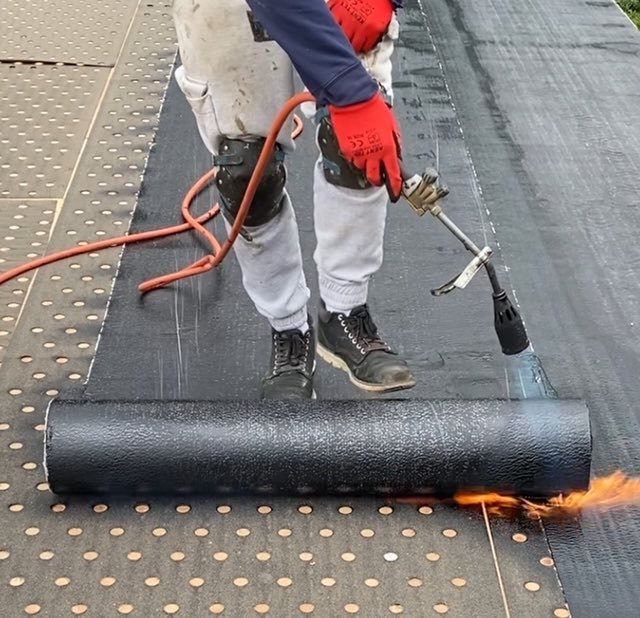
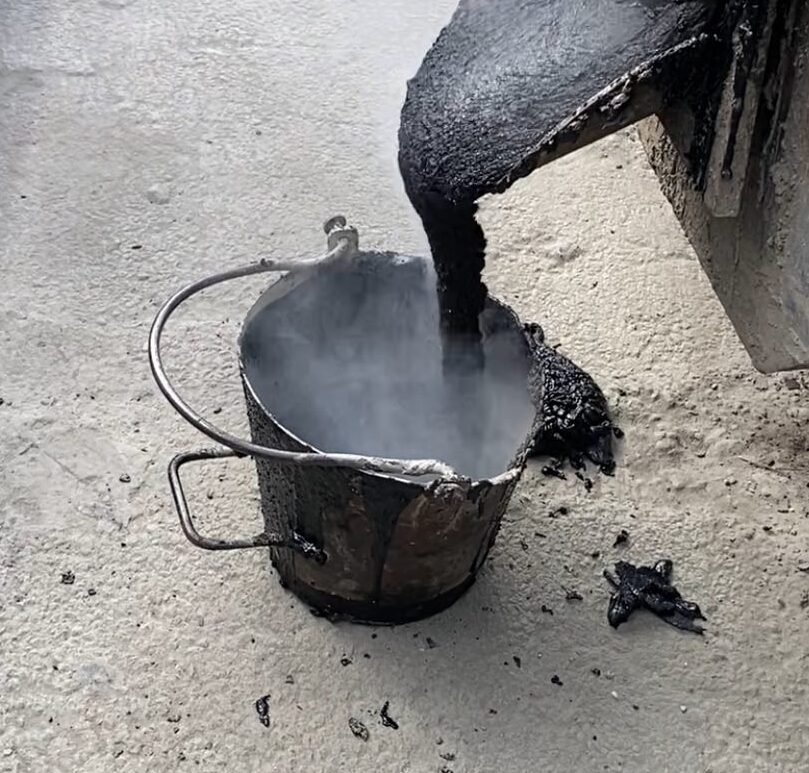
Membrane Waterproofing
Membrane waterproofing involves applying a protective layer to surfaces. This layer prevents water from penetrating the concrete or asphalt. There are several types of membrane waterproofing:
-
- Liquid Membranes: These are applied in liquid form and then harden to form a seamless barrier.
-
- Sheet Membranes: These come in rolls and are applied to surfaces using adhesives or heat.
-
- Bituminous Membranes: These are made from asphalt, a semi-solid form of petroleum and are very effective in waterproofing.
Each type has unique properties and applications. Liquid membranes are ideal for complex surfaces. Sheet membranes are easy to install. Bituminous membranes are highly durable. Choosing the right membrane depends on the specific needs of the project. Membrane waterproofing is widely used in both residential and commercial projects.
Integral Waterproofing
Integral waterproofing offers several advantages. It provides uniform protection throughout the concrete. This method is also less labour-intensive compared to membrane waterproofing. Integral waterproofing is ideal for structures exposed to high levels of moisture. It is used in basements, tunnels, and water tanks. This method ensures long-lasting protection and reduces maintenance costs.
Advantages of Concrete – Asphalt Waterproofing
Concrete – Asphalt Waterproofing is a technique used to protect surfaces from water damage. This method involves applying a water-resistant layer to concrete surfaces. The main goal is to prevent water from seeping through and causing damage. The advantages of concrete-asphalt waterproofing include increased durability and cost-effectiveness. These benefits make it a popular choice for many construction projects.
Durability
Durability is one of the most significant benefits of concrete – asphalt waterproofing. A waterproof layer can extend the life of concrete surfaces. Water can cause cracks and weaken the structure over time and waterproofing helps to avoid these issues.
Here are some reasons why durability is essential:
-
- Clean the crack: Remove debris and dirt from the crack.
-
-
Apply sealant: Use a quality asphalt sealant to fill the crack.
-
Smooth the surface: Ensure the sealant is even with the surface.
- Clean the crack: Remove debris and dirt from the crack.
Ignoring cracks can lead to more significant problems. Water can freeze and expand inside the cracks, making them more prominent. This weakens the concrete and leads to more extensive damage.
Regularly check for new cracks and repair them quickly. This keeps your concrete and existing asphalt waterproof and extends its life. Timely repairs are a tiny effort that prevents significant expenses later.
Environmental Impact
Concrete – asphalt waterproofing is crucial for protecting surfaces from water damage. This process extends the lifespan of roads, driveways, and other structures. It also helps maintain their aesthetic appeal. The environmental impact of waterproofing methods needs careful consideration. The use of certain materials may have adverse effects on the environment. This blog post explores sustainability and eco-friendly options for waterproofing concrete and asphalt.
Sustainability Considerations
Concrete – asphalt waterproofing has various sustainability aspects to consider. It’s vital to use materials that minimize environmental harm. Some key points to keep in mind include:
-
- Material Selection: Choosing materials with a low carbon footprint is essential. Recycled materials can reduce waste and energy consumption.
-
- Durability: Longer-lasting materials mean fewer replacements and less waste over time. High-quality waterproofing can extend the life of concrete and asphalt surfaces significantly.
-
- Energy Efficiency: The production and application of waterproofing materials should consume minimal energy. This ensures a lower environmental impact.
Eco-friendly Alternatives
Eco-friendly alternatives for concrete – asphalt waterproofing are gaining popularity. These options offer sustainable solutions that minimize environmental impact. Some noteworthy alternatives include:
-
- Permeable Pavements: These pavements allow water to pass through, reducing runoff and promoting groundwater recharge. This can help in managing stormwater effectively.
-
- Green Roofs: Vegetated roofs can absorb rainwater and reduce the heat island effect. They also provide insulation and improve air quality.
-
- Cool Pavements: These pavements reflect more sunlight and absorb less heat. This can lower the surrounding temperature and reduce energy use for cooling buildings nearby.
Using eco-friendly materials can further enhance sustainability.
Future Trends in Waterproofing
Concrete – asphalt waterproofing is crucial for maintaining the durability of concrete structures. Waterproofing prevents water from seeping into concrete, which can cause cracks and damage. Technology is evolving. There is a focus on sustainability. So, the future of waterproofing looks promising, understanding these trends helps in making better decisions for construction projects.
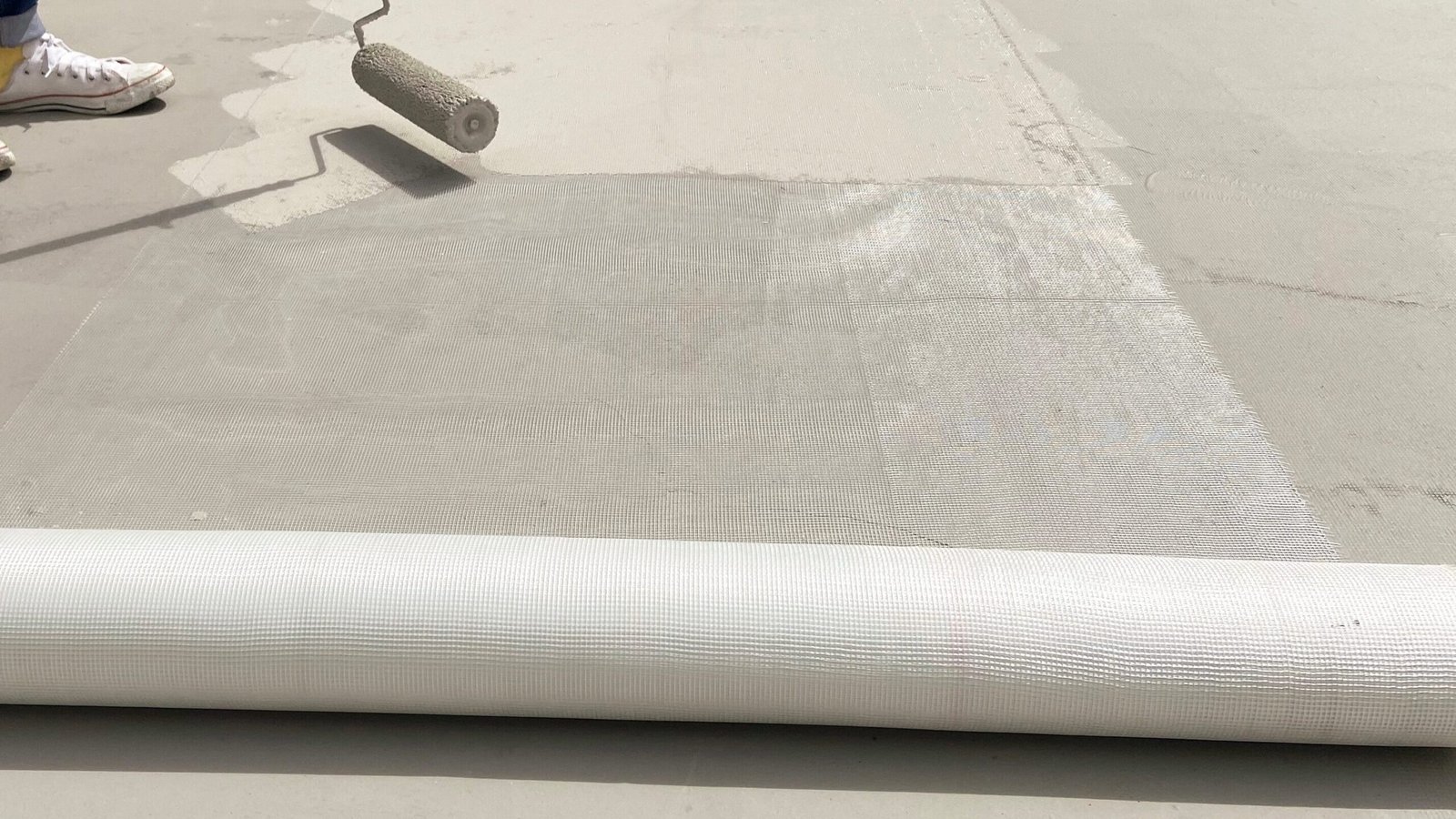
Technological Advancements
Technological advancements in waterproofing have made significant strides. New materials and techniques have emerged, offering better protection and efficiency. Some of these advancements include:
-
- Nanotechnology: Nanotech coatings create a strong barrier against water.
-
- Self-healing concrete: This material can repair its cracks, enhancing durability.
-
- Advanced sealants: Modern sealants offer superior adhesion and flexibility.
Green Building Practices
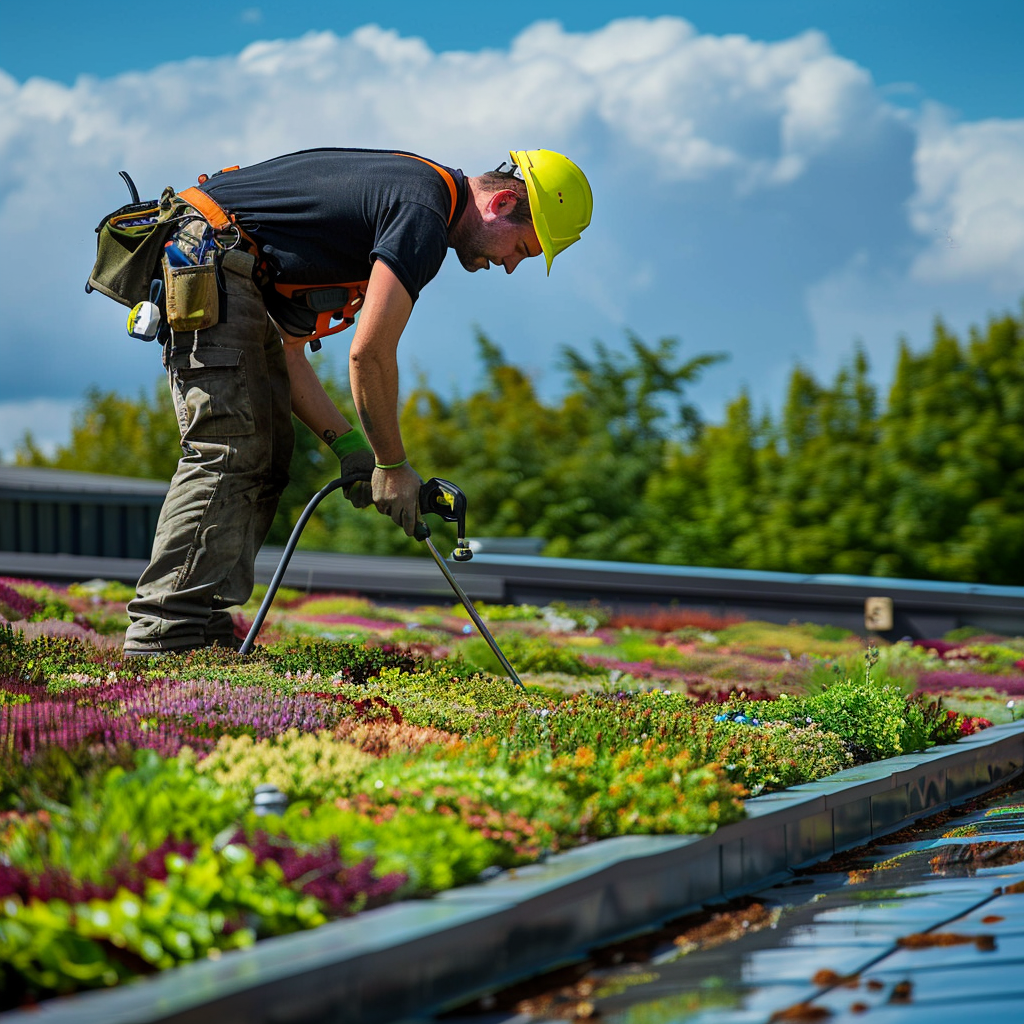
Green building practices are gaining traction in waterproofing. These practices focus on reducing environmental impact while maintaining efficiency. Key trends in this area include:
-
- Eco-friendly materials: Use of sustainable and recyclable materials.
-
- Energy-efficient systems: Techniques that save energy during application.
-
- Water conservation: Methods that reduce water usage in the waterproofing process.
Contact Denco Liquid Waterproofing Today
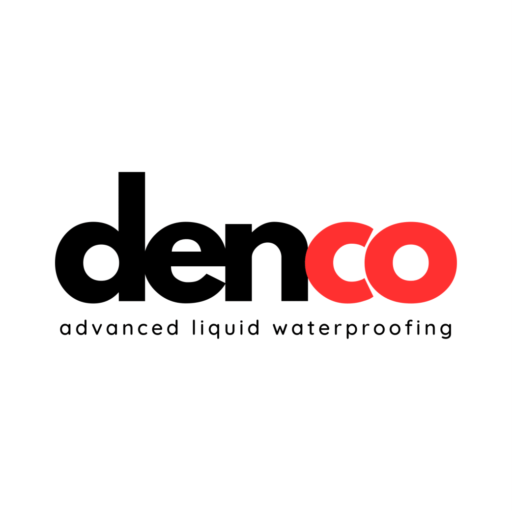
Protecting your concrete surfaces from water damage is essential. Waterproofing enhances durability and longevity. Invest in high-quality waterproofing solutions to prevent costly repairs. Keep your surfaces safe and extend their lifespan. Proper maintenance ensures your investment remains in top condition for years.
For top-quality concrete – asphalt waterproofing in London, contact Denco Liquid Waterproofing. Our expert team provides reliable and durable solutions to protect your surfaces from water damage. Reach out today for customised, high-quality service.
Common Questions about Concrete – Asphalt Waterproofing
Is Concrete Waterproof?
Tarmac, commonly known as asphalt pavement, is not waterproof. It is durable and weather-resistant. But, it is not completely impervious to water. Engineers design asphalt pavement to be porous. It allows for rainwater drainage and prevents pooling on the surface. But, over time, cracks and wear can happen in the pavement. They let water seep through and might damage the layers below.
How to make Concrete Waterproof?
A standard method to make concrete waterproof is to apply a sealant or coating on the surface. This sealant creates a barrier. It stops water from seeping into the concrete and causing damage. There are many types of sealants available. They include acrylic, silicone, or coal tar-based sealants. Each type offers different waterproofing levels.
How do you Permanently Waterproof Concrete?
Several methods can be used to permanently waterproof concrete. Asphalt has been used for centuries often referred to as ‘The King of Waterproofing’ for its durability and versatile properties, dating back even 2,000 years ago to ancient Greece and Rome. One common approach is to apply a waterproofing sealer or coating to the surface of the concrete. These sealers create a barrier. It stops water from getting into the concrete. This keeps the concrete dry and resistant to moisture damage.
How do you Waterproof Concrete Surfaces?
You must waterproof concrete surfaces. It protects them from water damage and makes them last longer. One common method is to apply an advanced waterproof liquid coating. It forms a barrier on the concrete, this sealant will stop water from getting in and also protects the concrete from moisture issues like cracking and spalling.
-
- Clean the crack: Remove debris and dirt from the crack.
-
-
Apply sealant: Use a quality asphalt sealant to fill the crack.
-
Smooth the surface: Ensure the sealant is even with the surface.
- Clean the crack: Remove debris and dirt from the crack.
Ignoring cracks can lead to more significant problems. Water can freeze and expand inside the cracks, making them more prominent. This weakens the concrete and leads to more extensive damage.
Regularly check for new cracks and repair them quickly. This keeps your concrete and existing asphalt waterproof and extends its life. Timely repairs are a tiny effort that prevents significant expenses later.
Environmental Impact
Concrete – asphalt waterproofing is crucial for protecting surfaces from water damage. This process extends the lifespan of roads, driveways, and other structures. It also helps maintain their aesthetic appeal. The environmental impact of waterproofing methods needs careful consideration. The use of certain materials may have adverse effects on the environment. This blog post explores sustainability and eco-friendly options for waterproofing concrete and asphalt.
Sustainability Considerations
Concrete – asphalt waterproofing has various sustainability aspects to consider. It’s vital to use materials that minimize environmental harm. Some key points to keep in mind include:
-
- Material Selection: Choosing materials with a low carbon footprint is essential. Recycled materials can reduce waste and energy consumption.
-
- Durability: Longer-lasting materials mean fewer replacements and less waste over time. High-quality waterproofing can extend the life of concrete and asphalt surfaces significantly.
-
- Energy Efficiency: The production and application of waterproofing materials should consume minimal energy. This ensures a lower environmental impact.
Eco-friendly Alternatives
Eco-friendly alternatives for concrete – asphalt waterproofing are gaining popularity. These options offer sustainable solutions that minimize environmental impact. Some noteworthy alternatives include:
-
- Permeable Pavements: These pavements allow water to pass through, reducing runoff and promoting groundwater recharge. This can help in managing stormwater effectively.
-
- Green Roofs: Vegetated roofs can absorb rainwater and reduce the heat island effect. They also provide insulation and improve air quality.
-
- Cool Pavements: These pavements reflect more sunlight and absorb less heat. This can lower the surrounding temperature and reduce energy use for cooling buildings nearby.
Using eco-friendly materials can further enhance sustainability.
Future Trends in Waterproofing
Concrete – asphalt waterproofing is crucial for maintaining the durability of concrete structures. Waterproofing prevents water from seeping into concrete, which can cause cracks and damage. Technology is evolving. There is a focus on sustainability. So, the future of waterproofing looks promising, understanding these trends helps in making better decisions for construction projects.

Technological Advancements
Technological advancements in waterproofing have made significant strides. New materials and techniques have emerged, offering better protection and efficiency. Some of these advancements include:
-
- Nanotechnology: Nanotech coatings create a strong barrier against water.
-
- Self-healing concrete: This material can repair its cracks, enhancing durability.
-
- Advanced sealants: Modern sealants offer superior adhesion and flexibility.
Green Building Practices

Green building practices are gaining traction in waterproofing. These practices focus on reducing environmental impact while maintaining efficiency. Key trends in this area include:
-
- Eco-friendly materials: Use of sustainable and recyclable materials.
-
- Energy-efficient systems: Techniques that save energy during application.
-
- Water conservation: Methods that reduce water usage in the waterproofing process.
Contact Denco Liquid Waterproofing Today

Protecting your concrete surfaces from water damage is essential. Waterproofing enhances durability and longevity. Invest in high-quality waterproofing solutions to prevent costly repairs. Keep your surfaces safe and extend their lifespan. Proper maintenance ensures your investment remains in top condition for years.
For top-quality concrete – asphalt waterproofing in London, contact Denco Liquid Waterproofing. Our expert team provides reliable and durable solutions to protect your surfaces from water damage. Reach out today for customised, high-quality service.
Common Questions about Concrete – Asphalt Waterproofing
Is Concrete Waterproof?
Tarmac, commonly known as asphalt pavement, is not waterproof. It is durable and weather-resistant. But, it is not completely impervious to water. Engineers design asphalt pavement to be porous. It allows for rainwater drainage and prevents pooling on the surface. But, over time, cracks and wear can happen in the pavement. They let water seep through and might damage the layers below.
How to make Concrete Waterproof?
A standard method to make concrete waterproof is to apply a sealant or coating on the surface. This sealant creates a barrier. It stops water from seeping into the concrete and causing damage. There are many types of sealants available. They include acrylic, silicone, or coal tar-based sealants. Each type offers different waterproofing levels.
How do you Permanently Waterproof Concrete?
Several methods can be used to permanently waterproof concrete. Asphalt has been used for centuries often referred to as ‘The King of Waterproofing’ for its durability and versatile properties, dating back even 2,000 years ago to ancient Greece and Rome. One common approach is to apply a waterproofing sealer or coating to the surface of the concrete. These sealers create a barrier. It stops water from getting into the concrete. This keeps the concrete dry and resistant to moisture damage.
How do you Waterproof Concrete Surfaces?
You must waterproof concrete surfaces. It protects them from water damage and makes them last longer. One common method is to apply an advanced waterproof liquid coating. It forms a barrier on the concrete, this sealant will stop water from getting in and also protects the concrete from moisture issues like cracking and spalling.
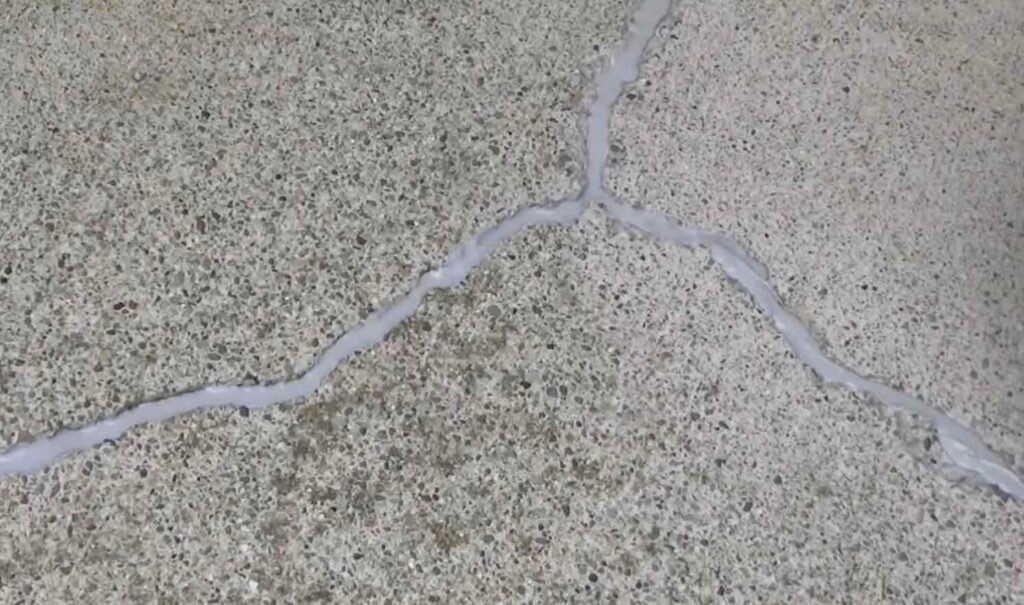
-
- Prevents water damage
-
- Reduces the risk of cracks and potholes
-
- Maintains the structural integrity
Waterproofing materials like sealants and membranes provide a strong barrier. This barrier resists water penetration. This means surfaces can withstand harsh weather conditions. Rain, snow, and ice can all damage unprotected surfaces. Waterproofing ensures that these elements do not cause harm.
Additionally, waterproofed surfaces require less maintenance. Regular repairs and resurfacing are often needed for unprotected surfaces. With waterproofing, the need for these repairs is significantly reduced. This makes it easier to maintain and extends the lifespan of the surfaces.
Cost-effectiveness
Cost-effectiveness is another major advantage of concrete – asphalt waterproofing. The initial cost of waterproofing might seem high. However, the long-term savings are substantial. Reduced maintenance and repair costs contribute to these savings.
Consider the following points:
-
- Fewer repair costs over time
-
- Less frequent need for resurfacing
-
- Lower risk of significant structural damage
A waterproofed surface lasts longer. This means you will not need to replace it as often. Replacement costs are much higher than waterproofing costs. By investing in waterproofing, you save money in the long run.
Moreover, waterproofing can increase the value of a property. A well-maintained surface is more appealing to potential buyers. This can lead to a higher resale value. Investing in waterproofing is an intelligent financial decision. It protects your investment and increases its worth.
Common Waterproofing Problems
Concrete – asphalt waterproofing is crucial for maintaining the integrity of surfaces. Without proper waterproofing, asphalt can suffer from various issues. Common waterproofing problems can lead to severe damage. Addressing these issues can save time and money.
Cracks And Leaks
Cracks and leaks are significant issues in concrete asphalt. Water can seep through these cracks. This weakens the structure. The most common causes of cracks include:
-
- Temperature changes cause expansion and contraction.
-
- Heavy traffic leads to wear and tear.
-
- Poor installation methods.
Regular inspections can help identify these issues early. Filling cracks promptly prevents further damage. Sealants and fillers are effective solutions.
Poor Drainage
Poor drainage can cause serious issues. Water pooling on the surface is a common sign. This can lead to rapid deterioration. Common causes of poor drainage include:
-
- Improper slope of the asphalt surface.
-
- Blocked drainage systems.
-
- Insufficient drainage outlets.
Ensuring proper drainage is essential. Installing adequate drainage systems is a must. Regular maintenance of these systems is also vital. Clearing debris and blockages can prevent water accumulation. Here are some tips for maintaining good drainage:
-
- Check and clean drains regularly.
-
- Ensure the surface is sloped correctly.
-
- Install additional drains if necessary.
Proper drainage extends the life of concrete asphalt. This helps avoid costly repairs in the future.
Application of Concrete – Asphalt Waterproofing
Waterproofing concrete with asphalt is crucial. It protects structures from water damage, this method involves applying a waterproof layer of asphalt to concrete surfaces. It helps in preventing water infiltration and extends the lifespan of the structure. Concrete – asphalt waterproofing is used in various parts of a building. This includes roofs, balconies, stairways and basements.
Concrete Step Waterproofing
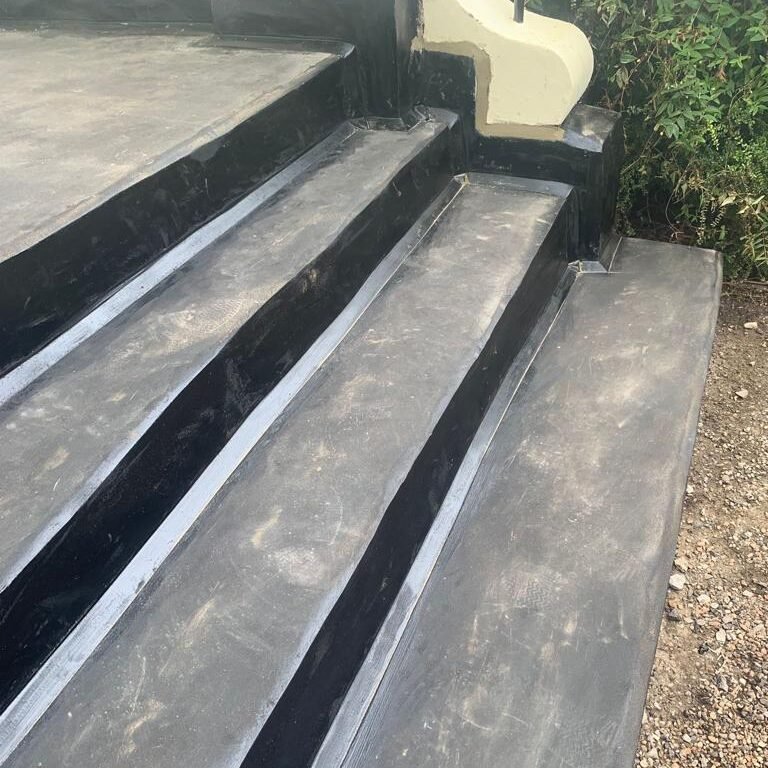
Mastic Asphalt Step Renewal
Prevents water infiltration, protecting structural integrity. It extends the lifespan of concrete stairs exposed to weather.
Roofs
Roofs are highly exposed to weather elements like rain, snow, and sunlight. Asphalt waterproofing on roofs helps in protecting the building from water leaks. Waterproofing the roof ensures that water does not seep into the structure, this can prevent structural damage, dampness and mold growth.
There are several steps involved in waterproofing a roof:
-
- Cleaning the surface to remove any debris.
-
- Applying a primer to enhance adhesion.
-
- Installing a vapour barrier membrane.
-
- Installing a waterproof membrane.
-
- Adding a top layer of asphalt for extra protection.
These steps ensure a durable and long-lasting waterproof barrier. Regular maintenance is also necessary to check for any damages or wear and tear. This will keep the roof in good condition and extend its life.


Basements
Basements are prone to water seepage due to their location below ground level. Waterproofing the basement with asphalt is essential to prevent water damage. A dry basement ensures a healthy living environment.
The process of basement waterproofing includes:
-
- Inspecting the basement walls for cracks and holes.
-
- Sealing the cracks with a suitable sealant.
-
- Applying a primer to the walls.
-
- Coating the walls with a waterproof asphalt layer.
-
- Installing a drainage system to manage water flow.
These steps create a watertight barrier that protects the basement from water infiltration. Regular inspections and maintenance help in keeping the basement dry and safe.
Maintenance Tips
Concrete – asphalt waterproofing is essential for the longevity of your surfaces. Proper maintenance can prevent damage and save money. Regular checks and timely repairs keep the concrete in good shape, follow these tips to ensure your concrete surfaces stay waterproofed and durable.
Regular Inspections
Regular inspections are crucial for maintaining your concrete. They help you spot issues early. Here are some steps to follow:
-
- Check the surface: Look for cracks, holes, and water pooling.
-
- Inspect drainage: Ensure water flows away from the asphalt.
-
- Look at edges: Make sure the edges are intact and not crumbling.
It’s vital to keep a schedule for these inspections. Consider inspecting your concrete and existing asphalt every few months. This helps identify problems before they worsen. Early detection can save both time and money.
During inspections, take note of any changes. Documenting issues helps in tracking the health of your asphalt. Use photos to record the condition. This makes it easier to compare over time.
Repairing cracks promptly is essential. Cracks allow water to seep in. This can cause significant damage. Here are the steps to follow for repairs:
-
- Clean the crack: Remove debris and dirt from the crack.
-
-
Apply sealant: Use a quality asphalt sealant to fill the crack.
-
Smooth the surface: Ensure the sealant is even with the surface.
- Clean the crack: Remove debris and dirt from the crack.
Ignoring cracks can lead to more significant problems. Water can freeze and expand inside the cracks, making them more prominent. This weakens the concrete and leads to more extensive damage.
Regularly check for new cracks and repair them quickly. This keeps your concrete and existing asphalt waterproof and extends its life. Timely repairs are a tiny effort that prevents significant expenses later.
Environmental Impact
Concrete – asphalt waterproofing is crucial for protecting surfaces from water damage. This process extends the lifespan of roads, driveways, and other structures. It also helps maintain their aesthetic appeal. The environmental impact of waterproofing methods needs careful consideration. The use of certain materials may have adverse effects on the environment. This blog post explores sustainability and eco-friendly options for waterproofing concrete and asphalt.
Sustainability Considerations
Concrete – asphalt waterproofing has various sustainability aspects to consider. It’s vital to use materials that minimize environmental harm. Some key points to keep in mind include:
-
- Material Selection: Choosing materials with a low carbon footprint is essential. Recycled materials can reduce waste and energy consumption.
-
- Durability: Longer-lasting materials mean fewer replacements and less waste over time. High-quality waterproofing can extend the life of concrete and asphalt surfaces significantly.
-
- Energy Efficiency: The production and application of waterproofing materials should consume minimal energy. This ensures a lower environmental impact.
Eco-friendly Alternatives
Eco-friendly alternatives for concrete – asphalt waterproofing are gaining popularity. These options offer sustainable solutions that minimize environmental impact. Some noteworthy alternatives include:
-
- Permeable Pavements: These pavements allow water to pass through, reducing runoff and promoting groundwater recharge. This can help in managing stormwater effectively.
-
- Green Roofs: Vegetated roofs can absorb rainwater and reduce the heat island effect. They also provide insulation and improve air quality.
-
- Cool Pavements: These pavements reflect more sunlight and absorb less heat. This can lower the surrounding temperature and reduce energy use for cooling buildings nearby.
Using eco-friendly materials can further enhance sustainability.
Future Trends in Waterproofing
Concrete – asphalt waterproofing is crucial for maintaining the durability of concrete structures. Waterproofing prevents water from seeping into concrete, which can cause cracks and damage. Technology is evolving. There is a focus on sustainability. So, the future of waterproofing looks promising, understanding these trends helps in making better decisions for construction projects.

Technological Advancements
Technological advancements in waterproofing have made significant strides. New materials and techniques have emerged, offering better protection and efficiency. Some of these advancements include:
-
- Nanotechnology: Nanotech coatings create a strong barrier against water.
-
- Self-healing concrete: This material can repair its cracks, enhancing durability.
-
- Advanced sealants: Modern sealants offer superior adhesion and flexibility.
Green Building Practices

Green building practices are gaining traction in waterproofing. These practices focus on reducing environmental impact while maintaining efficiency. Key trends in this area include:
-
- Eco-friendly materials: Use of sustainable and recyclable materials.
-
- Energy-efficient systems: Techniques that save energy during application.
-
- Water conservation: Methods that reduce water usage in the waterproofing process.
Contact Denco Liquid Waterproofing Today

Protecting your concrete surfaces from water damage is essential. Waterproofing enhances durability and longevity. Invest in high-quality waterproofing solutions to prevent costly repairs. Keep your surfaces safe and extend their lifespan. Proper maintenance ensures your investment remains in top condition for years.
For top-quality concrete – asphalt waterproofing in London, contact Denco Liquid Waterproofing. Our expert team provides reliable and durable solutions to protect your surfaces from water damage. Reach out today for customised, high-quality service.
Common Questions about Concrete – Asphalt Waterproofing
Is Concrete Waterproof?
Tarmac, commonly known as asphalt pavement, is not waterproof. It is durable and weather-resistant. But, it is not completely impervious to water. Engineers design asphalt pavement to be porous. It allows for rainwater drainage and prevents pooling on the surface. But, over time, cracks and wear can happen in the pavement. They let water seep through and might damage the layers below.
How to make Concrete Waterproof?
A standard method to make concrete waterproof is to apply a sealant or coating on the surface. This sealant creates a barrier. It stops water from seeping into the concrete and causing damage. There are many types of sealants available. They include acrylic, silicone, or coal tar-based sealants. Each type offers different waterproofing levels.
How do you Permanently Waterproof Concrete?
Several methods can be used to permanently waterproof concrete. Asphalt has been used for centuries often referred to as ‘The King of Waterproofing’ for its durability and versatile properties, dating back even 2,000 years ago to ancient Greece and Rome. One common approach is to apply a waterproofing sealer or coating to the surface of the concrete. These sealers create a barrier. It stops water from getting into the concrete. This keeps the concrete dry and resistant to moisture damage.
How do you Waterproof Concrete Surfaces?
You must waterproof concrete surfaces. It protects them from water damage and makes them last longer. One common method is to apply an advanced waterproof liquid coating. It forms a barrier on the concrete, this sealant will stop water from getting in and also protects the concrete from moisture issues like cracking and spalling.
